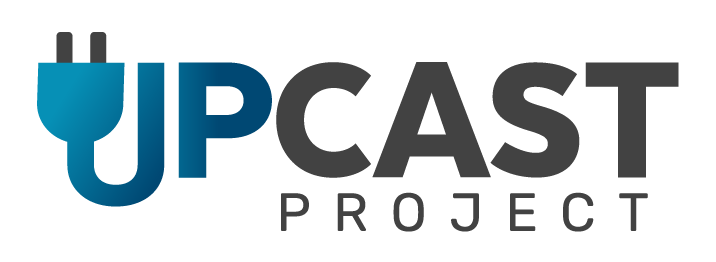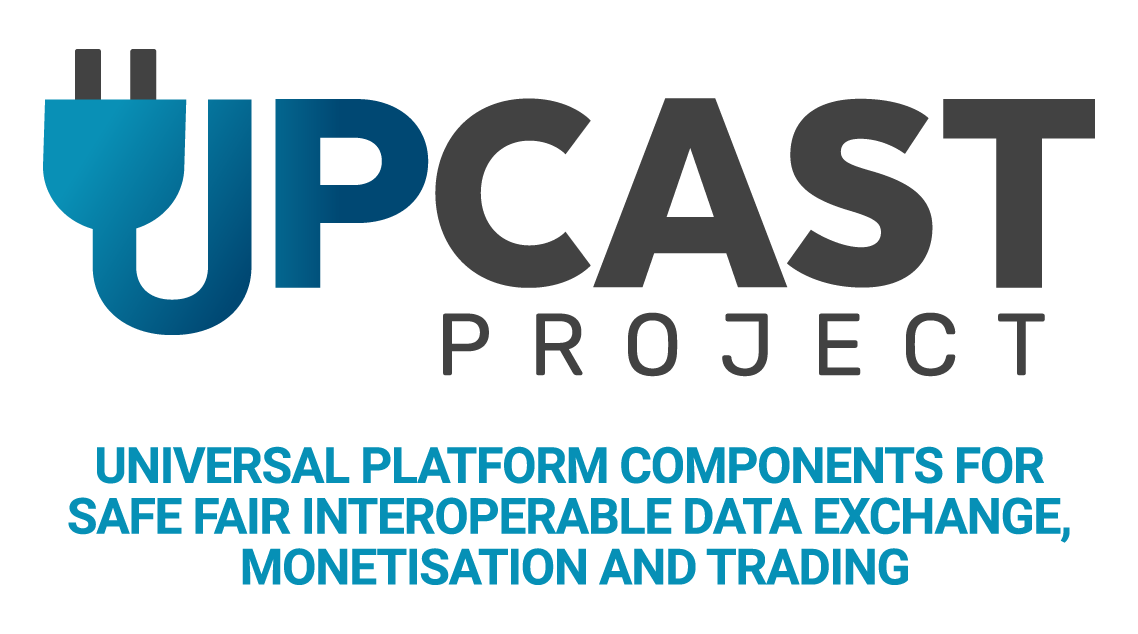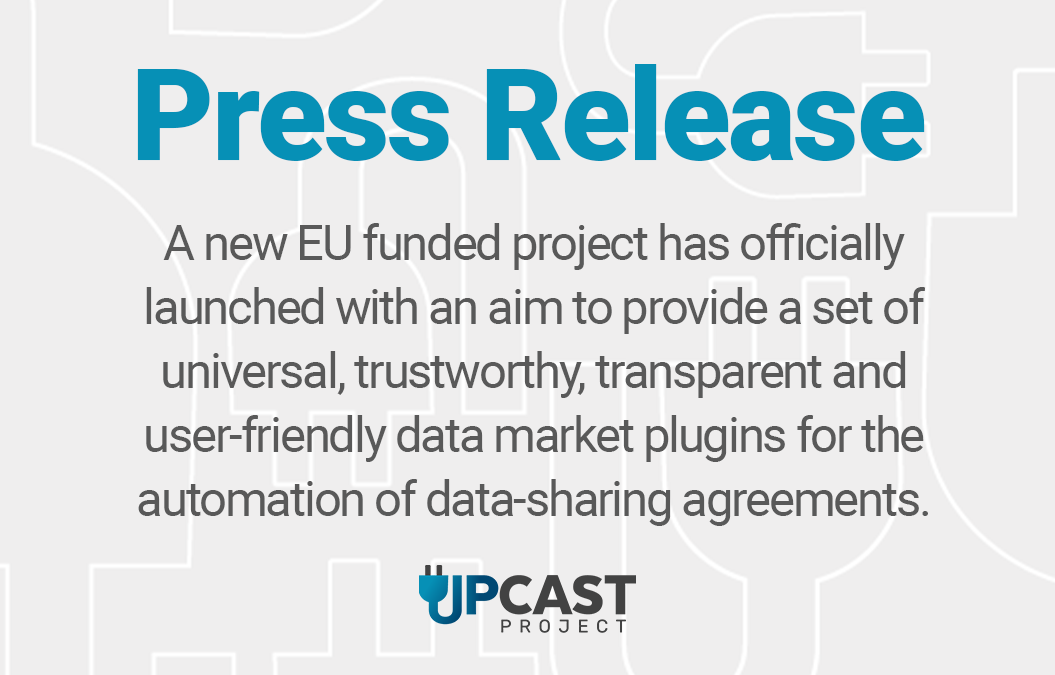
UPCAST Project – Universal Platform Components for Safe Fair Interoperable Data Exchange, Monetisation and Trading
Milan, May 2023- A new EU funded project has officially launched with an aim to provide a set of universal, trustworthy, transparent and user-friendly data market plugins for the automation of data-sharing agreements.
Digital technologies play a pivotal role in maximising the benefits of a data-driven society and a data-based economy, but they must be firmly grounded in reliable, legal, privacy-preserving, and environmentally sound data exchange methodologies, architectures, and processes. These will enable citizens, businesses, and public administrations to process and leverage the value of an ever-increasing amount of data safely and efficiently.
“Economic and societal benefits coming from the implementation of AI and data analytics are clearly demonstrated in nearly all economic sectors and applications. Trading and monetizing data provides financial and operational advantages for all the partners in ‘data as a service’ and data marketplaces value chain, although contracting, pricing, security and ethics issues represent significant hurdles for smaller less experienced players. UPCAST project will help overcome these challenges, allowing European organisations to take a more proactive stance in exploiting their data” says Richard Stevens, VP Director of Government Consulting, IDC and UPCAST Project Coordinator.
“UPCAST aims at providing tools to reduce the friction of sharing and selling data products that can be used in any Data Space, Data Marketplace, or even for bilateral agreement. UPCAST plugins will help dataset and data operations owners to solve questions such as: How to describe them for others to discover? How to define and enforce usage policies? How to valuate them? How to ensure data processing is ethical and environmentally efficient? How to negotiate data access and pricing conditions? Αll these questions to be resolved are at the heart of the European policies aiming to ensure Europe’s global competitiveness and data sovereignty” says George Konstantinidis, Assistant Professor in AI at the School of Electronics & Computer Science of the University of Southampton, UPCAST Project Scientific Coordinator.
The EU is striving to make data the key asset to empower our society and to enable businesses and the public sector to make better and quicker decisions. The European Strategy for Data introduced the concept of the Common European Data Spaces, with the aim to provide a seamless common digital market of personal and commercial data to facilitate value creation and growth for businesses and organizations.
gh-level objective of UPCAST is to design and deploy a set of universal plugins for Data sharing, monetization and trading platforms that enable actors in the Common European Data spaces to collaboratively negotiate, improve and enforce data sharing contracts automatically, providing dynamic fair pricing mechanisms while implementing energy-efficient data exchange, ensuring privacy, confidentiality and legislation compliance and adhering to ethical and responsibility guidelines.
How will UPCAST support the deployment of the Common European Data Spaces?
UPCAST will support the deployment of Common European data spaces by consolidating and acting upon mature research to solve the burning challenges of data management, privacy, valorisation, fair compensation, , exchange and automated negotiation, considering environmental efficiency as well as compliance with EU and national initiatives, relevant laws and regulations (including the upcoming EU AI Act) and ethical principles.
UPCAST Pilot demonstrations
Four real-world pilots across Europe will operationalise a set of working platform plugins for data sharing, monetisation and trading, deployable across a variety of different data marketplaces and platforms, ensuring digital autonomy of data providers, brokers, users and data subjects, and enabling interoperability within the Common European Data Spaces.
The four pilots featured by UPCAST highlight a series of data-related challenges, such as:
➢ Data providers and consumers are not always adequately compensated for the value of their data and don’t have the tools to address the requirements underpinning secure data sharing and data processing.
➢ Several disparate data platforms and marketplaces are emerging, but the data spaces still miss the interoperability tools to exploit synergies and solve data tasks across users and platforms.
➢ Data sharing is commonly impeded by the complex process of drafting and implementing formal contractual agreements specific to privacy, regulation and other custom requirements of data sharing. These contracts quickly become obsolete for new applications or different stakeholders, discouraging new transactions.
Pilot 1 – Digital Marketing Data and Resources: Integration and monetisation
Digital marketing is a rising industry with a high economic and sociocultural impact. Thanks to the data collection about the impact and performance of the active marketing campaigns done by the SME JOT Media, interested parties can detect and analyze market trends based on a broad range of criteria: from location to business verticals for different timespans.
Pilot 2 – Biomedical and Genomic Data: Privacy-preserving sharing
This pilot concerns the Metabolic Engineering and Bioinformatics Group of the Institute of Chemical Biology, National Hellenic Research Foundation (NHRF). NHRF is exploring genomic data, generated either from molecular profiling of cancer tissues or from in vitro cancer models, along with Next Generation Sequencing (NGS) public datasets, aiming to elucidate molecular mechanisms altered in cancer pathophysiology. To this end, NHRF leverages computational tools for the data-driven analysis and integration of a large volume of high complexity genomic data, aiming at the holistic description of complex biological processes.
Pilot 3 – Shared Public Administration Data for Climate across Thessaloniki Metropolitan area
This pilot involves the 11 municipalities that comprise the Metropolitan Area of Thessaloniki and their need to realise data-driven environmental policy making. Working under their umbrella organisation, Major Development Agency Thessaloniki – Organisation for Local Development (MDAT S.A.), and Open Knowledge Foundation Greece (OKF Greece), work together for this pilot that will use the UPCAST plugins to integrate and exchange all data related to Thessaloniki’s public administration environmental policy use case.
“Data-driven climate action and decision making is a key challenge for the city of Thessaloniki today, as participant city of the EU Mission for 100 climate-neutral cities by 2030. Municipalities and local authorities need to have a strong scientific support to improve data-driven environmental policy, that’s why UPCAST is a valuable project for us”, says Maria Karagianni, Chair of MDAT Directors Board and Deputy Mayor of the Municipality of Thessaloniki (Pilot 3)
Pilot 4 – Health and Fitness Data Trading: valuation for fair compensation
Nissatech’s Smart4Fit platform is a system for real-time fitness monitoring that solves the “isolation” issue: wearables (smartwatches) are part of a bigger IoT ecosystem (fitness clubs equipped with IOT-enabled exercise machines) and are used in collaborative scenarios, like group training and team-basedgamification. To incentivise data sharing among users, UPCAST will provide insights to establish value-based data transactions.
More about the UPCAST Project
UPCAST has received funding from the EU’s Horizon Europe research and innovation programme under HORIZON-CL4-2022-DATA-01 Innovation Action (IA), Grant Agreement ID 101093216. The duration of the project is 36 months.
Contact us
For more information, please visit upcastproject.eu
or contact us at info@upcast-project.eu

